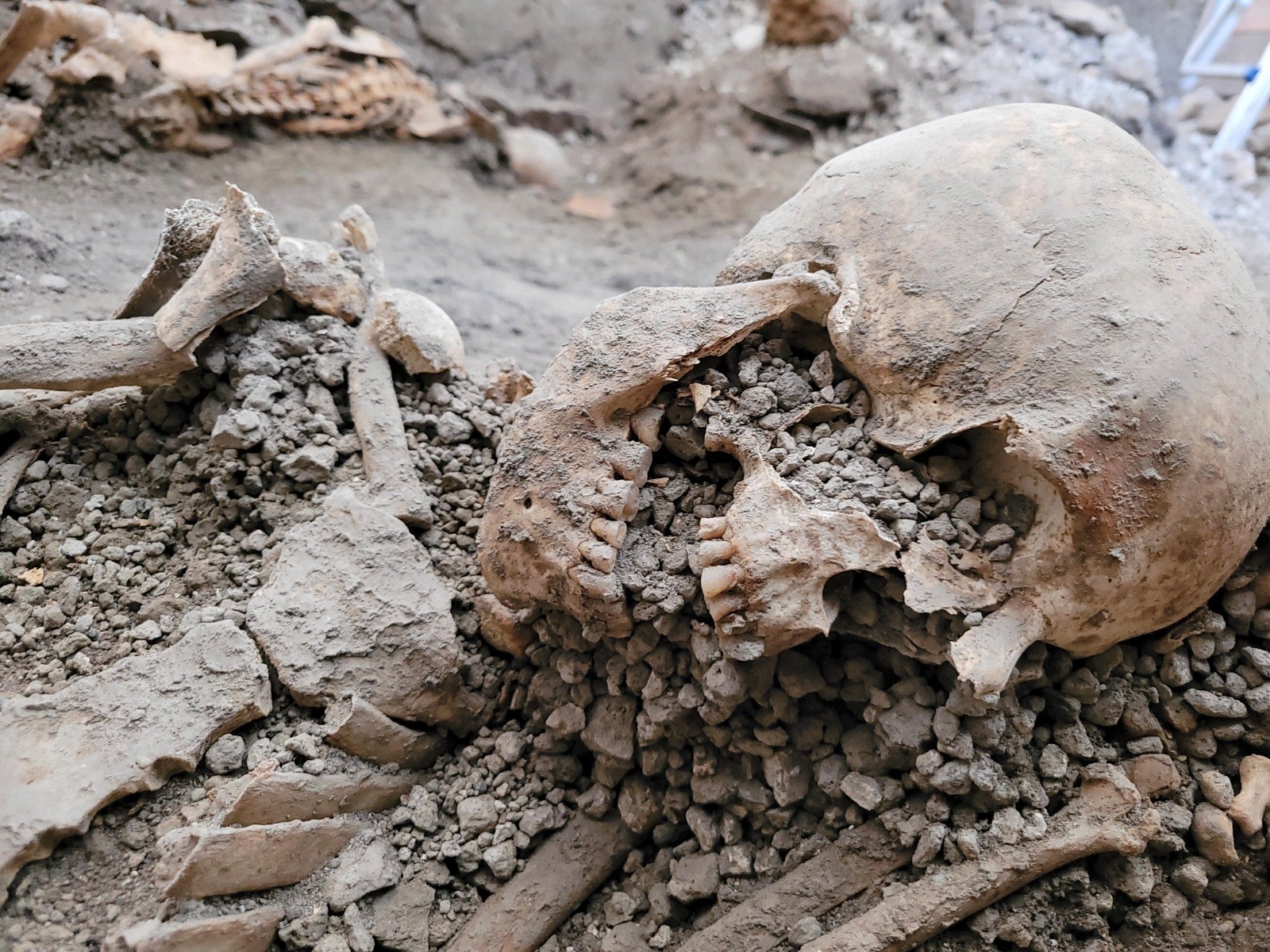Skeletons found in Pompeii ruins reveal deaths by earthquake – not just eruption of Mount Vesuvius
‘Modern excavation techniques help us to better understand the inferno that completely destroyed the city,’ says director of the Pompeii Archaeological Park

Skeletons of two people believed to have been killed by an earthquake that accompanied the eruption of Mount Vesuvius nearly 2,000 years ago have been found in the ruins of the ancient Roman city of Pompeii.
The remains were recovered from a building known as the "House of the Painters at Work", and are probably of two men in their 50s, the Italian Culture Ministry said,
The director of the Pompeii Archaeological Park, Gabriel Zuchtriegel, said they were killed not by volcanic ash but by collapsing buildings, noting that wall fragments were found between their fractured bones. The area was likely undergoing reconstruction work at the time of the eruption in AD 79, following an earthquake a few days earlier.
"In recent years, we have realised there were violent, powerful seismic events that were happening at the time of the eruption," Mr Zuchtriegel said.
"Modern excavation techniques help us to better understand the inferno that completely destroyed the city of Pompeii over two days, killing many inhabitants", the German archaeologist added.
Pompeii, 15 miles (23 kilometres) southeast of Naples, was home to about 13,000 people when it was buried under ash, pumice pebbles and dust as it endured the force of an eruption equivalent to many atomic bombs. The Culture Ministry said "at least 15-20 per cent of the population" was killed.
The Pompeii site, not discovered until the 16th century, has seen a burst of recent archaeological activity aimed at halting years of decay and neglect, largely thanks to a recently-concluded €105m (£91m) EU-funded project.
Italy's culture minister, Gennaro Sangiuliano, said conservation and archaeological research efforts would continue.
"The discovery of these two skeletons shows us that we still need to study a lot, do more excavations to bring out everything that is still (hiding) in this immense treasure," he said.
Reuters
Subscribe to Independent Premium to bookmark this article
Want to bookmark your favourite articles and stories to read or reference later? Start your Independent Premium subscription today.

Join our commenting forum
Join thought-provoking conversations, follow other Independent readers and see their replies